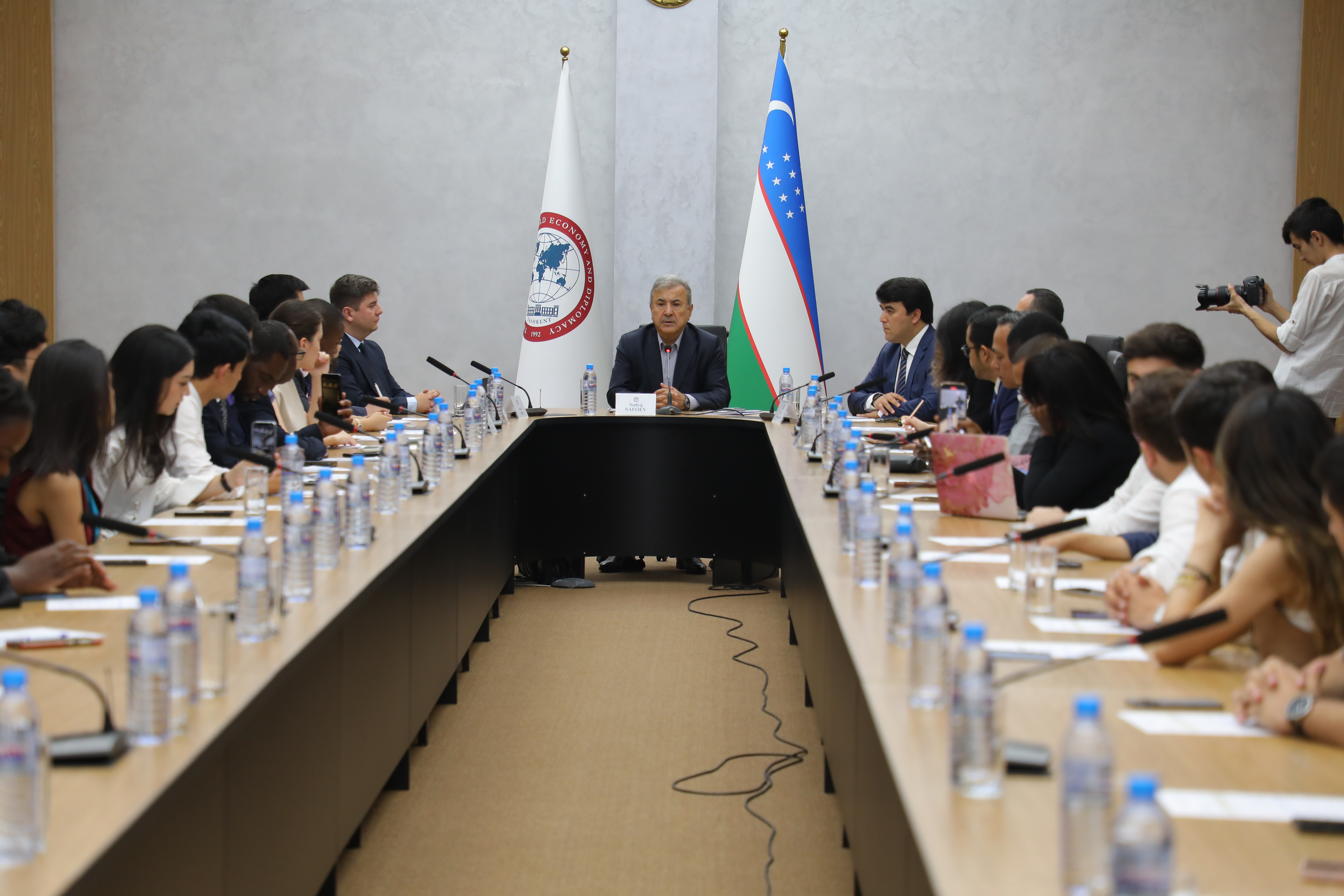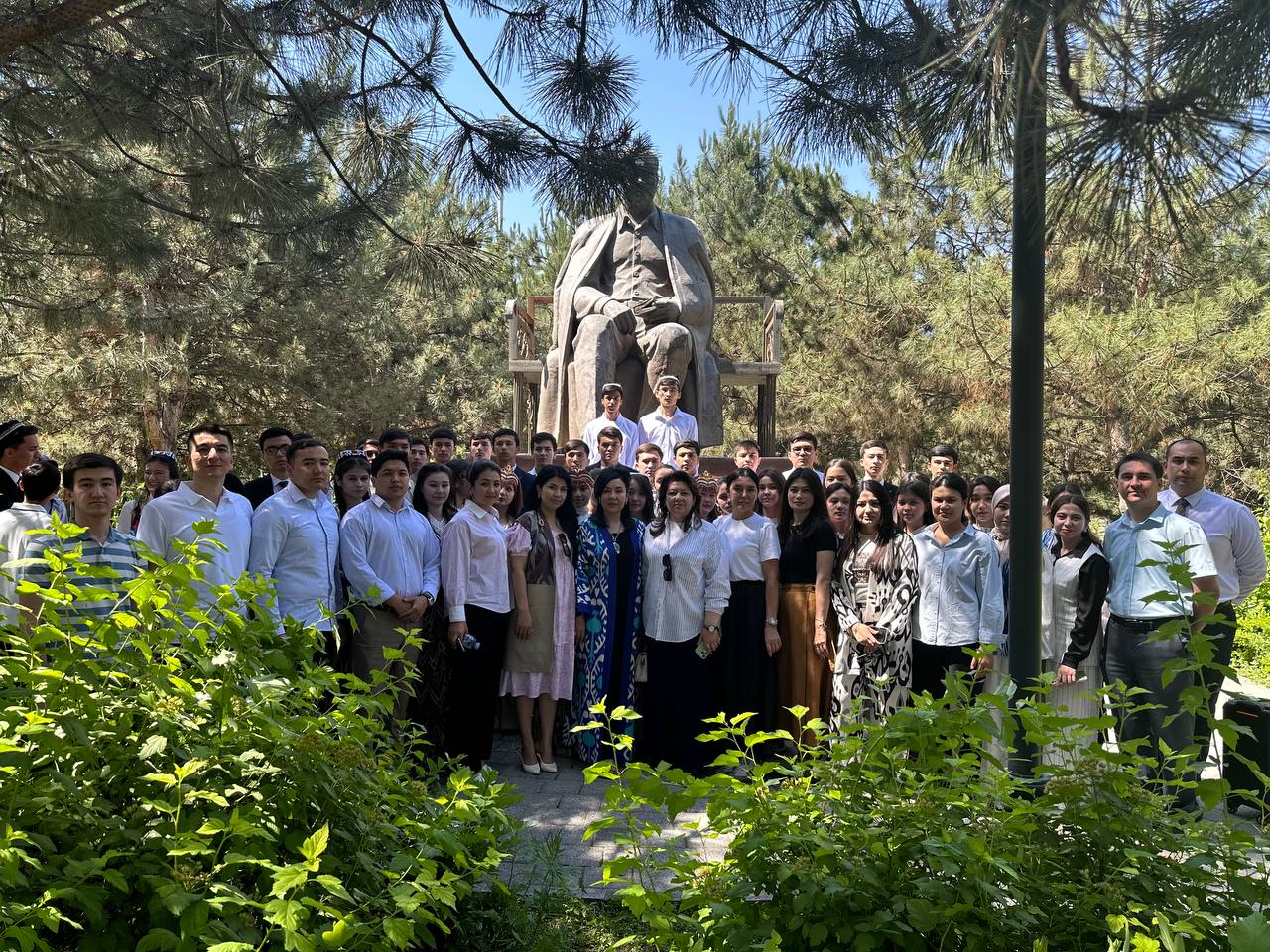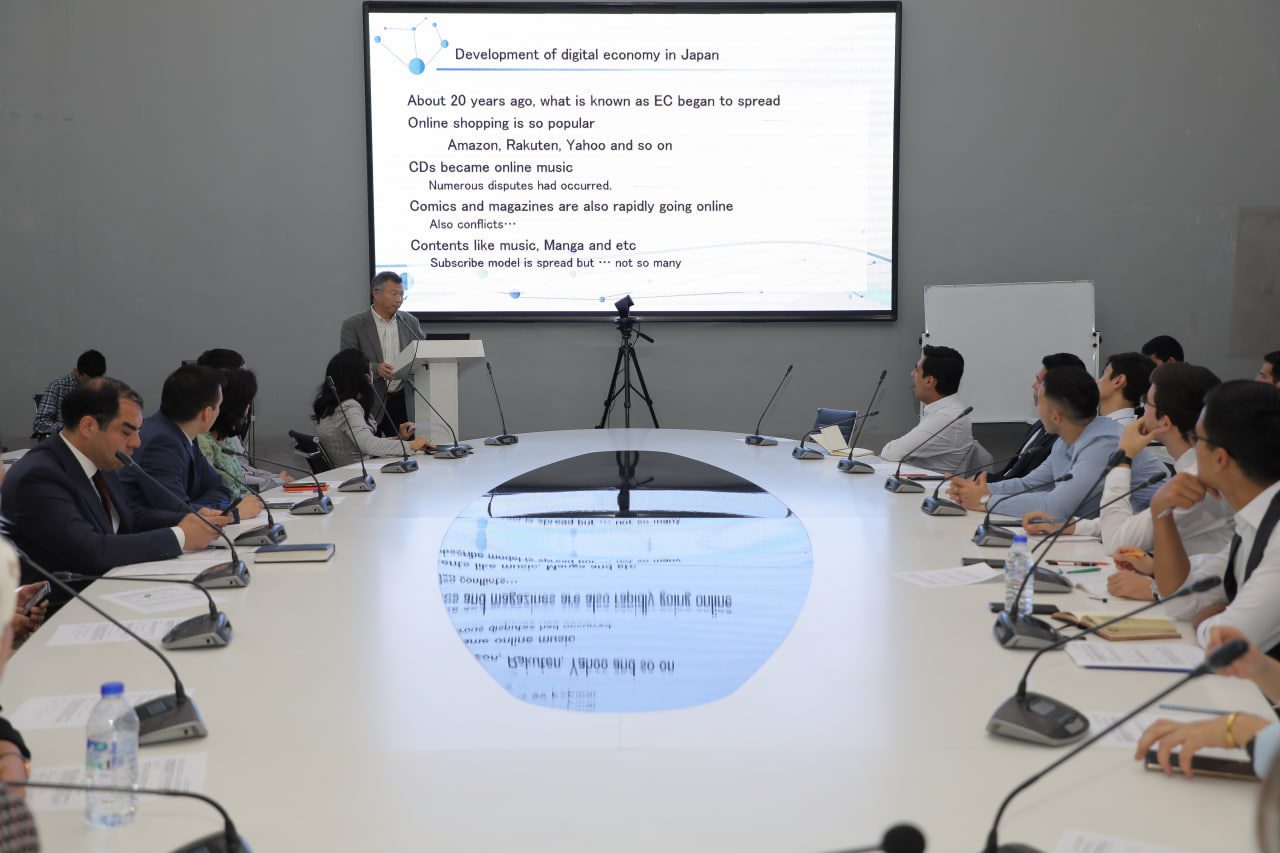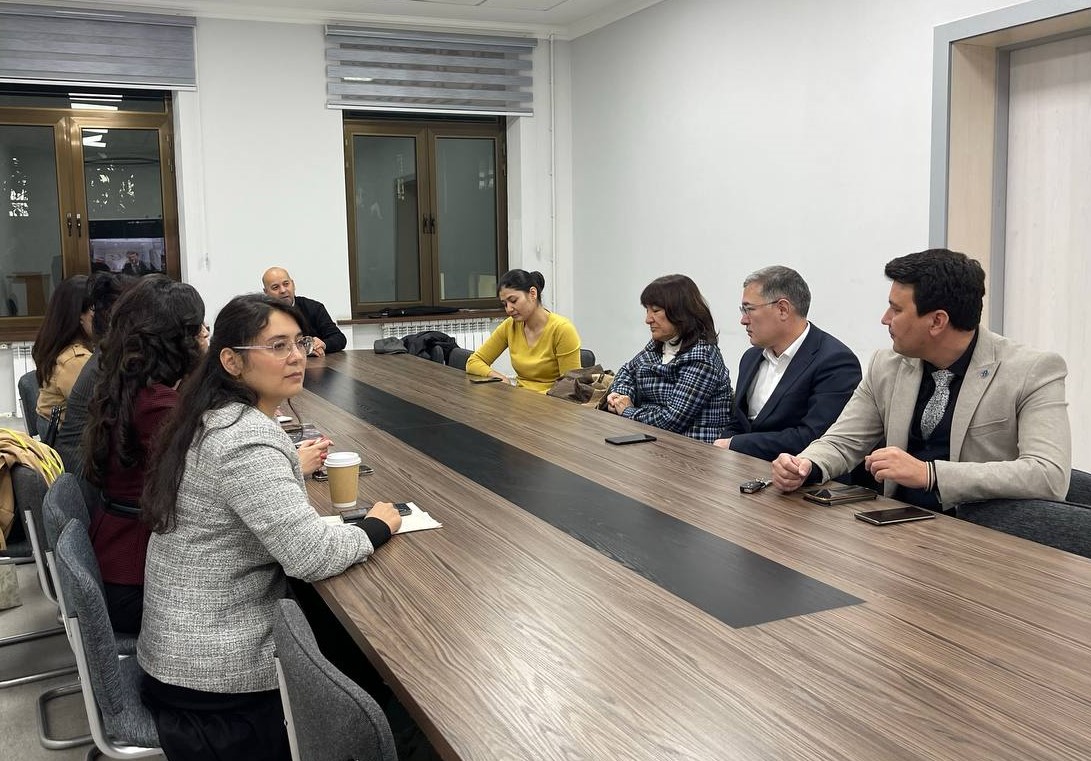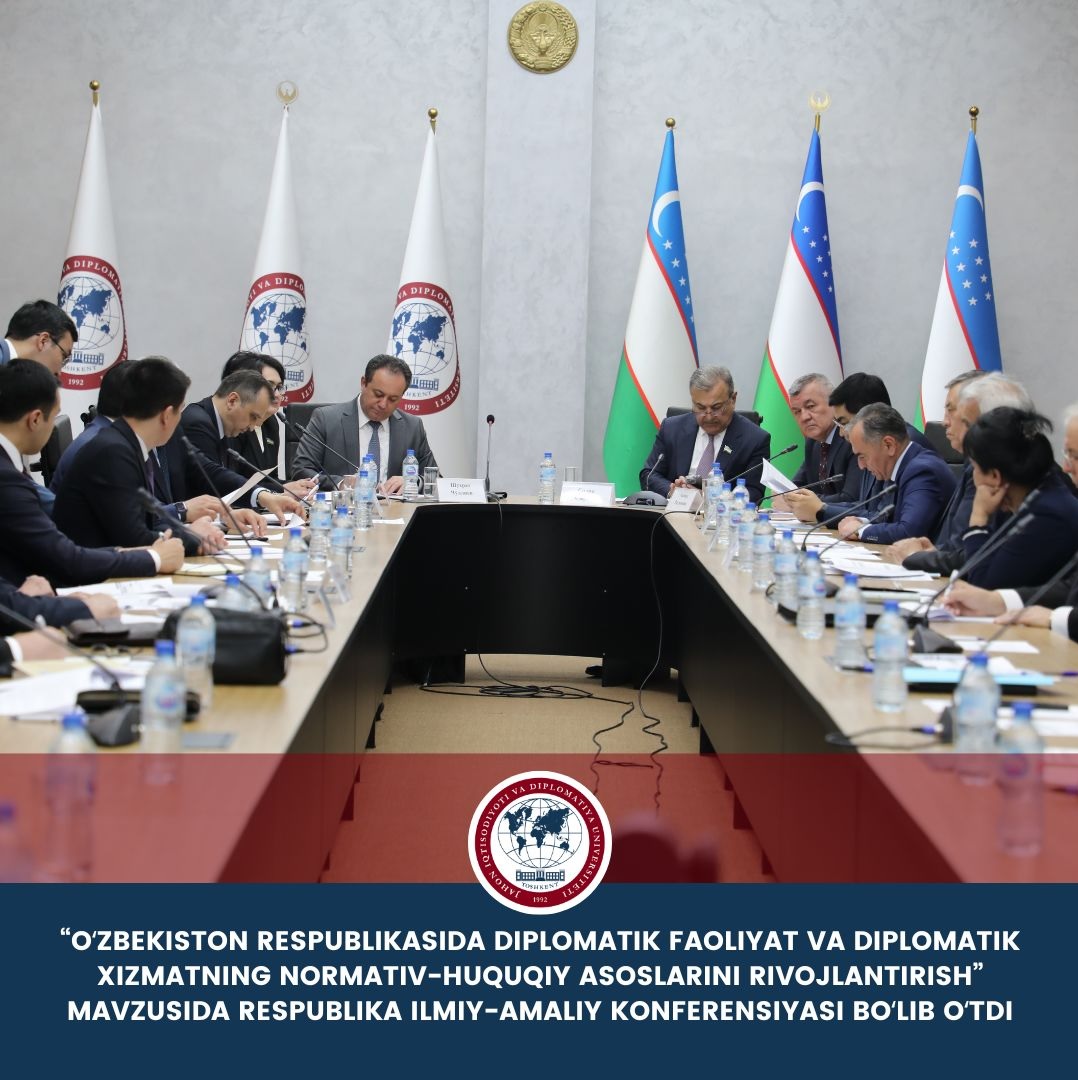
Climate change and the role of media and education in shaping a sustainable future were discussed
Climate change and the role of media and education in shaping a sustainable future were discussed
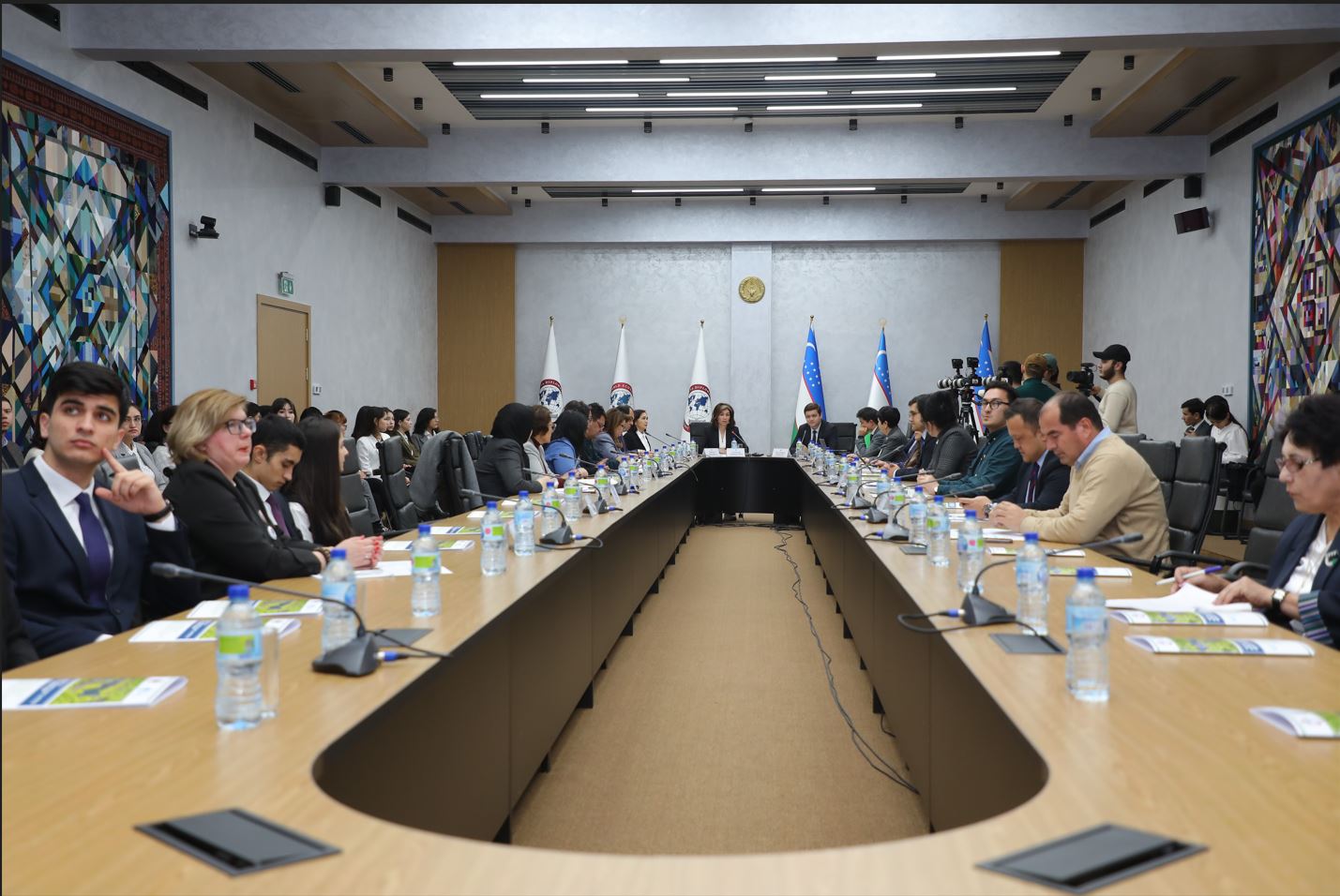
On March 14 this year, a round table on the topic “Climate Change: The Role of Mass Media and Education in Shaping a Sustainable Future” was held at the University of World Economy and Diplomacy.
During which there was a discussion on the global climate crisis in the world with the participation of representatives from the media, representatives from the UAE embassy, and faculty and students from UWED. Eco-activists, representatives from UNDP, members of the Ecological Party, and the Committee for the Rescue of the Aral Sea also participated, along with leading journalists, students from Webster University, and staff from the University of Journalism and Mass Communications and the Center for Sustainable Development. Representatives from the Academic Community Network and colleagues from Central Asia involved in the Water Diplomacy project participated online.
The purpose of this meeting was to analyze the current situation and consequences of climate change, identify risks and opportunities for developing a climate change strategy by 2030, and transition to a decarbonization strategy for 2050 to combat climate change.
Climate change is a pressing issue that significantly impacts the environment and human life. The increase in global temperatures, changing weather patterns, and extreme weather events are just some of the consequences of climate change being felt worldwide. As is known, climate change results from the increase of anthropogenic greenhouse gases. The impacts of climate change extend beyond the environment and have far-reaching consequences for human health, social and economic systems, and the natural world.
The necessity to combat climate change has become an unequivocal call to action in the contemporary global discourse amidst widespread concern over this issue. The catastrophic consequences of climate change, such as the increasing frequency of natural disasters, the destruction of ecosystems, droughts, wildfires, and diseases caused by rising temperatures, are becoming evident and irreversible.
Uzbekistan's key commitment under the Paris Agreement is to reduce greenhouse gas emissions per unit of GDP by 10% by 2030 compared to 2010 levels.
To avoid potential threats and consequences of global climate change, it is essential to develop and implement a strategy to slow the pace of this trend, as well as to foster cohesion within the global community in addressing climate issues.
The main objective of this conference was to facilitate a swift transition from fossil fuels to renewable energy sources, such as wind and solar energy, within the framework of the next round of climate commitments.
During the upcoming meeting, issues regarding the role of combating the climate crisis globally were discussed. The discussion identified the causes and consequences of various problems related to the climate crisis. Participants were able to share experiences and knowledge, as well as develop specific measures for climate mitigation in the region.
